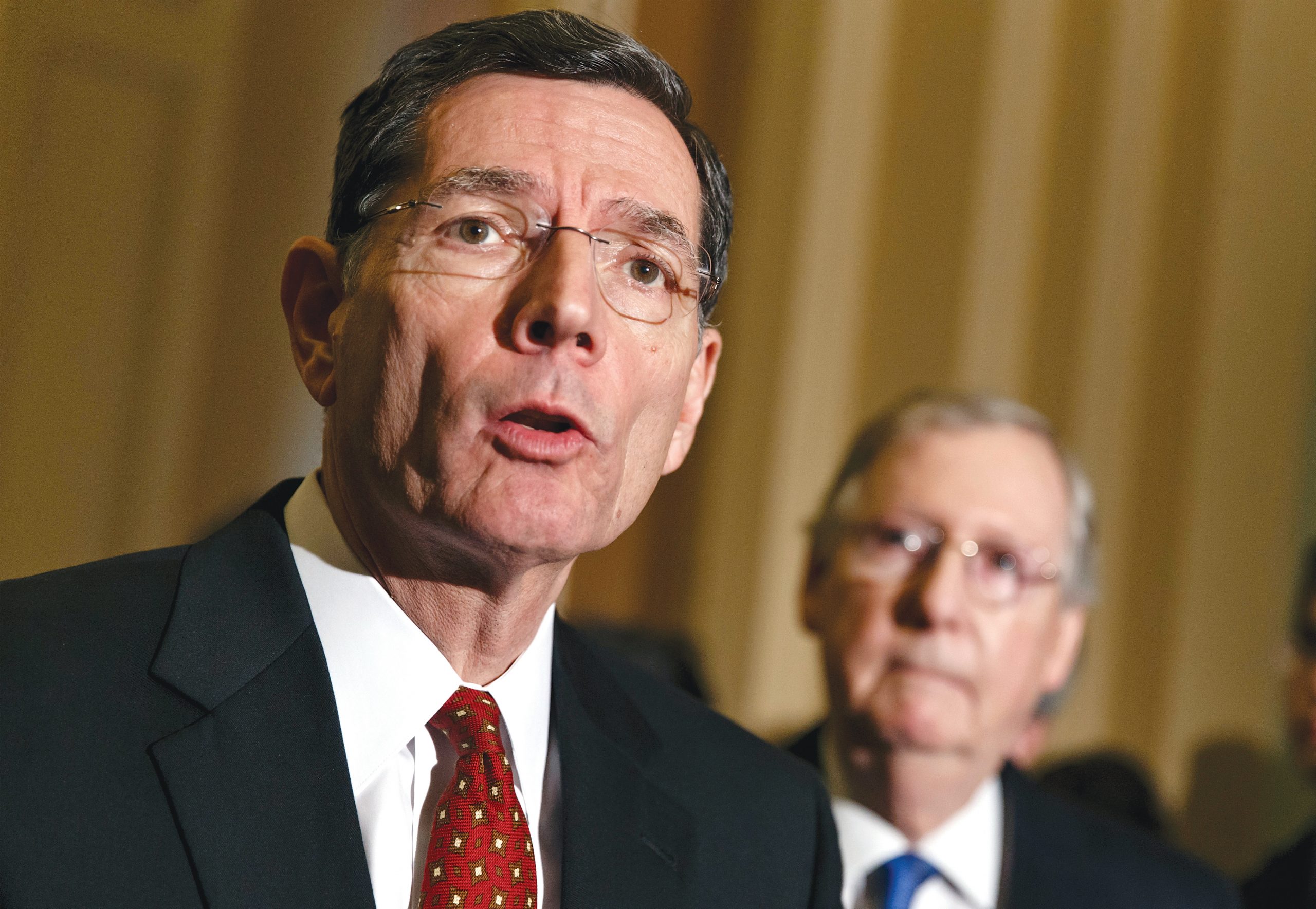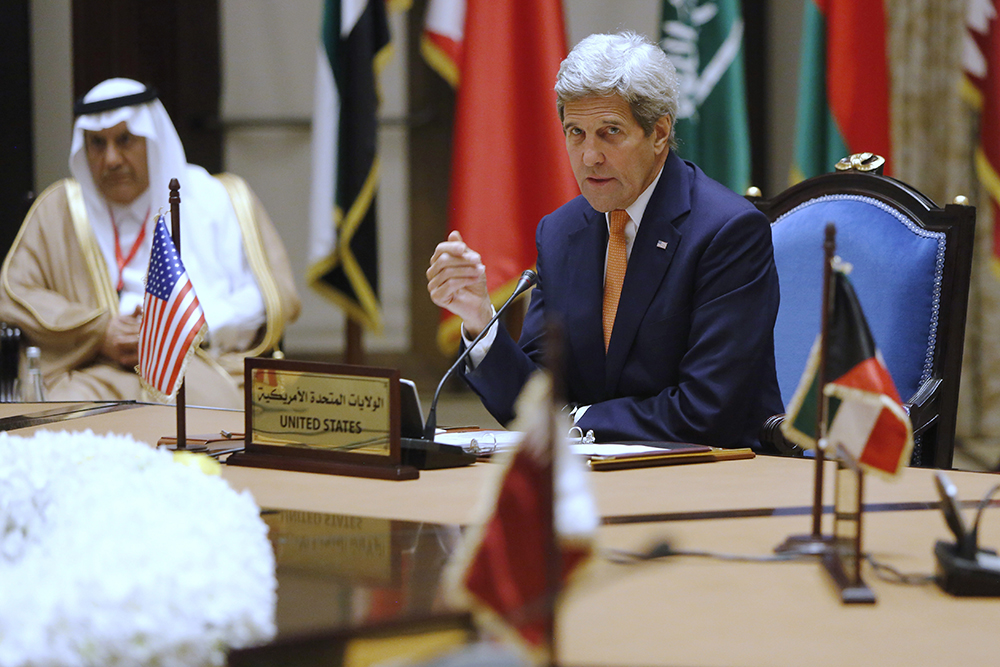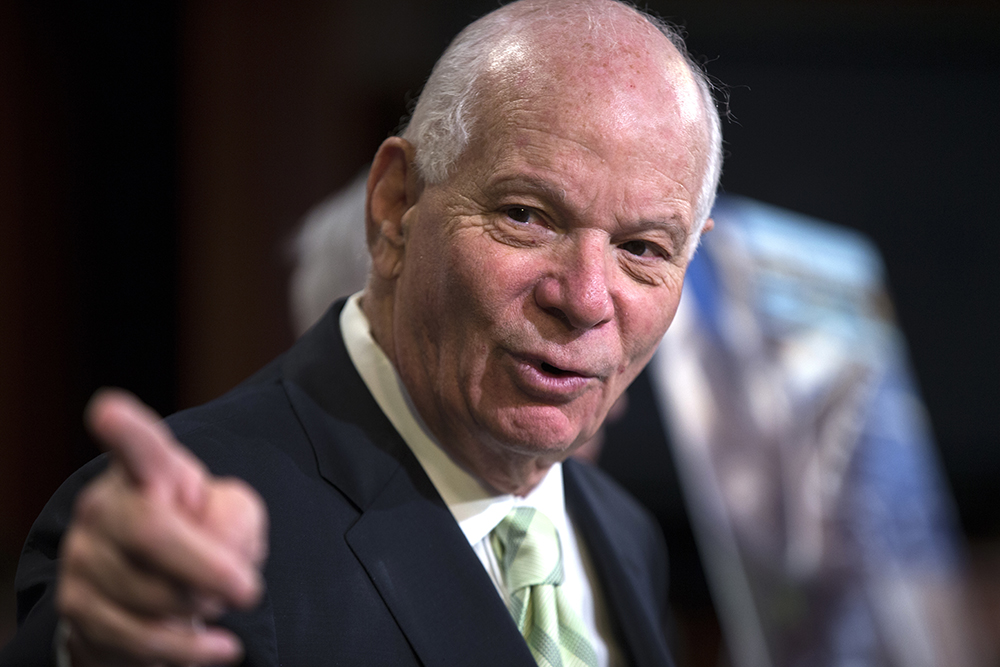Republicans are increasingly worried that Secretary of State John Kerry’s friendship with his Iranian counterpart is undercutting his negotiating power and skewing his role in implementing the nuclear deal to help benefit Iran instead of the U.S.
In recent weeks, as Kerry has repeatedly expressed the need for the U.S. to carry out its commitments and help Tehran benefit from the nuclear deal, top Republicans have openly remarked on Kerry’s tight-knit friendship with Mohammad Javad Zarif, the Iranian foreign minister, and have wondered aloud about whose interests Kerry is serving.
“I have a lot of concerns about Secretary John Kerry and his buddy-buddy relationship with Zarif and other people around the world,” Sen. John Barrasso, R-Wyo., a member of the Foreign Relations Committee, told the Washington Examiner.
Kerry previously became too chummy with Russian Foreign Minister Sergey Lavrov, Barrasso argued, when Kerry worked with Moscow to engineer the removal of most of Syria’s chemical weapons arsenal after Obama failed to follow through with his red-line threat to Syrian leader Bashar Assad, and more recently in the negotiations over a Syria ceasefire.
“I think we were taken advantage of there … and we’re seeing the same thing with Iran,” Barrasso added before voting in favor of an amendment offered by Sen. Tom Cotton, R-Ark. that would attempt to halt the U.S. purchase of heavy water from Iran to help Tehran benefit from the nuclear deal.
Senate Foreign Relations Chairman Bob Corker, R-Tenn., at a recent hearing on the implementation of the nuclear deal, suggested Kerry’s close ties to Zarif is causing mixed messages and inter-agency tensions within the administration.
“There are some people who are invested in this and have developed relationships and I think are trying to bend this in a way that will benefit Iran,” Corker said in a thinly veiled reference to Kerry when questioning a State Department undersecretary about reports that State was trying to allow Iran access to the U.S. dollar or banking system.

“I have a lot of concerns about Secretary John Kerry and his buddy-buddy relationship with Zarif and other people around the world,” Sen. John Barrasso, R-Wyo., a member of the Foreign Relations Committee, told the Washington Examiner. (AP)
During a year and a half of negotiations, Kerry and Zarif spent days on end and many long nights hammering out the details of the nuclear pact and forged a level of trust and camaraderie, Kerry has acknowledged.
In February, for instance, Kerry told lawmakers that if it wasn’t for his relationship with Zarif, 10 sailors apprehended in Iranian waters that month would likely have been taken as hostages.
Since the deal’s implementation in January, the two diplomats have had plenty of follow-up face time, meeting twice in the last week of April alone, amid concerns from Iranian officials that the United States had not met its sanction-relief obligations under the deal.
And in an interview in the New Yorker published late last month, Zarif said he and Kerry are talking two or three times a day about the implementation of the nuclear deal.
Asked about the frequency of the phone calls between the two, State Department spokesman Mark Toner said at certain points, such as during the crisis over the U.S. sailors and when Zarif was in New York, “they might have consulted,” but cast the idea of regular calls two to three times a day as a “bit of an embellishment.”
“I don’t know if it’s ever been two to three times a day,” he said. “Again, I’m not trying to counter this.”
Still, Kerry’s eagerness to defend the Iranian point of view on the nuclear deal amid talk of their close working relationship is causing heartburn on Capitol Hill.

Kerry said that it was his relationship with Zarif that kept 10 sailors apprehended in Iranian waters from being taken hostage. (AP)
According to GOP aides in Congress, the State Department, under Kerry’s direction, got out in front of the Treasury by leaking to reporters that the U.S. planned to help Iran gain access to U.S. dollars through offshore transactions.
This would help Iran benefit from the nuclear deal’s sanctions relief. The Treasury Department would have to make such a regulatory change, and its spokeswoman quickly and repeatedly ruled out such a change and called the media reports saying it was under serious consideration false.
Most major transactions are conducted in U.S. dollars, but European banks have been skittish about engaging with Iran, fearful that doing so would trigger severe U.S. sanctions. In mid-2014, France’s largest bank was forced to pay $9 billion for violating U.S. sanctions for doing business with Sudan, Iran and Cuba. The bank also had to agree to a year-long ban on its ability to conduct certain U.S. dollar transactions.
After an uproar in Congress over the prospect of the State Department allowing Iran to conduct business in some form of U.S. dollar transactions, Kerry was later forced to spend a week walking back the concept to lawmakers and promising not to try to provide any access to the dollar, according to GOP lawmakers and aides.
The dollarization issue already had lawmakers on edge when the Obama administration late last month announced a new part of the landmark nuclear deal that never faced congressional scrutiny: The U.S. would buy 32 metric tons of Iranian heavy water, a key component for a certain type of nuclear reactor, to help Iran benefit from the agreement.
Just days before, Kerry, during a visit to Bahrain, also floated the idea that the U.S. and its Persian Gulf allies could negotiate with Iran over its missile program as a way to try to address recent Iranian missile launches that fall outside the nuclear agreement, but violate other United Nations treaties.

While in Bahrain, Kerry floated the idea that the U.S. and its Persian Gulf allies could negotiate with Iran over its missile program. (AP)
The U.S. and its Gulf allies, Kerry said, are “prepared to work a new arrangement to find a peaceful solution to these issues.” The news roiled Gulf countries already upset that world powers made too many concessions without guarantees that Iran would stop supporting terrorist activities.
State Department spokesman Mark Toner days later tried to reframe the comments.
Toner said Kerry wasn’t suggesting that the US. would try to begin negotiations with Iran over its ballistic missile program, but was simply “emphasizing or underscoring the fact that if Iran chose to act more constructively in the region, then we can have a different kind of relationship with Iran.”
Those remarks came on the heels of Kerry’s comments to CBS News’ “Charlie Rose” in early April arguing that Iran and Russia have played a positive role in trying to end hostilities in the Middle East.
“If they hadn’t played a constructive role, we would not have an agreement with Iran,” he said.
Ten days later, Obama and Russian President Vladimir Putin had an “intense” conversation about the breakdown of the cease-fire in Syria, where Iran reportedly has been beefing up troops to bolster Assad’s hold on power. That news came nearly a month after Kerry told Congress that Iran was moving its troops out of that country.
Maryland Sen. Ben Cardin, the ranking Democrat on the Foreign Relations Committee, said he has several issues with Iran’s compliance with the deal. He’s tried to address these problems through legislation, but defended Kerry’s role in trying to develop diplomatic inroads with Tehran.

“The question is,” Sen. Cardin asked, “can Zarif deliver on behalf of Iran, and what are Iran’s intentions?” (AP)
“I believe in diplomacy and diplomacy involves relationships so … that situation I think is good in the way that [Kerry] has confidence [in Zarif],” he said. “The question is, can Zarif deliver on behalf of Iran, and what are Iran’s intentions?”
Other Republicans take a similar view. Sen. Lindsey Graham, R-S.C., pinned the blame on Obama for the nuclear deal and said Kerry, a “friend” and former Senate colleague, is simply the man designated to try to make it work.
While Graham didn’t mention Zarif, he said Kerry’s relationship with Lavrov has, at times, turned his stomach.
“Sometimes it’s hard to swallow when you see him kidding around with Lavrov after Lavrov and Putin have dismembered Syria, not to mention Ukraine,” Graham said.
He quickly added that his problem with the nuclear deal is “all about outcomes.”
“My beef with Secretary Kerry is not about his personal relationships between him and Lavrov and the foreign minister of Iran. You can have cordial diplomatic relationships. It’s outcomes,” he said. “The Iran nuclear deal is becoming as bad as I thought it would, but it’s not what the foreign minister thinks, it’s what the Ayatollah thinks that matters.”
